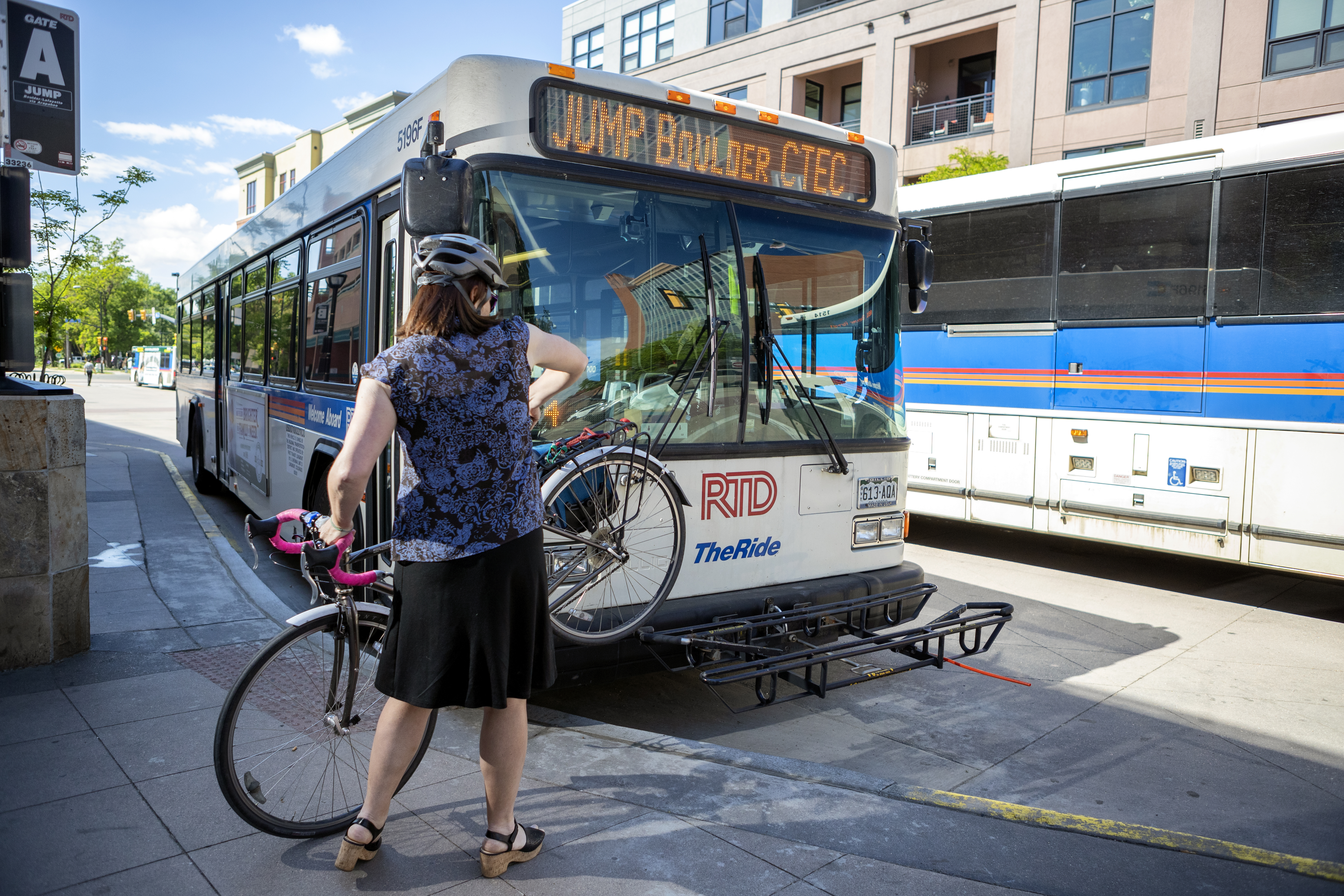Transportation is the largest source of greenhouse gas (GHG) emissions in Colorado, and the second largest in Boulder County. Boulder County aims to decrease transportation emissions through supporting efforts including multi-modal transportation, electric vehicles (EVs), and electric bicycles (e-Bikes); this sector plays a key role in achieving Boulder County’s emissions reduction goals.
Multi-Modal Transportation
The county’s Transportation Planning team in the Community Planning & Permitting Department focuses on transit, cycling, mobility, and corridor planning to increase multi-modal transportation options for Boulder County residents. The team’s Mobility for All program promotes accessible, affordable, and equitable transportation options for residents of all ages. Visit the Transportation Planning page to learn more about biking infrastructure, EcoPasses, youth programming, and more.
Electric Vehicles (EVs)
Replacing gas vehicles with EVs can dramatically reduce a business’s or household’s annual carbon emissions. Colorado has recently introduced several initiatives to help Coloradans make the switch to EVs. Learn more about EVs and incentives available to Boulder County residents here.
e-Bikes
Electric bicycles, or e-Bikes, are quickly growing in popularity. The motor-assisted bicycles make biking more accessible to more people, and can often be used to replace car trips to work or the grocery store. Learn about e-Bike purchase incentives, safety, and more here.
Leading by Example
Boulder County provides employees with free or discounted transit passes, pre-tax assistance with vanpool programs, and prioritized parking for carpools. The county also provides bicycles for employees to check out and use during the day for short trips that would otherwise require a vehicle. Policies and programs support the use of alternative transportation for employees, increase the use of fuel-efficient vehicles and decrease the emissions of the existing vehicle fleet.


